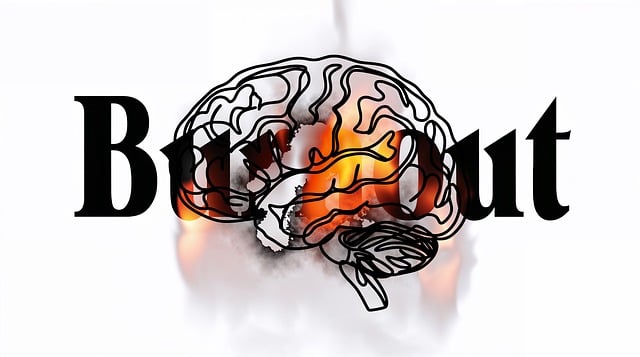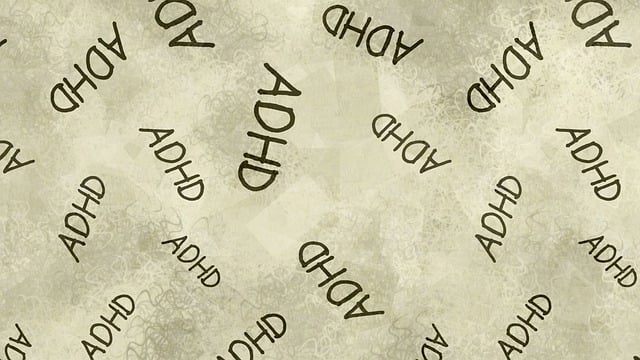Crisis intervention strategies, led by Lafayette Interpersonal Issues Therapy (LIIT), are vital for supporting individuals in emotional distress or trauma. LIIT provides structured guidance, focusing on interpersonal conflicts as root causes of crises. Key techniques include active listening, empathy, strategic questioning, and compassion cultivation. Community programs like Stress Management Workshops reinforce support networks, promoting mental well-being. Skilled professionals identify red flags and assess risk factors through emotional intelligence and communication to tailor interventions effectively. Active, non-judgmental communication builds trust and enables thorough risk assessments. Post-crisis, LIIT offers ongoing support for resilience and healing through psychotherapy, peer groups, and community programs.
In moments of crisis, effective intervention strategies can make a profound difference in an individual’s life. This article provides a comprehensive guide on crisis intervention, focusing on key components such as understanding the foundational principles, leveraging Lafayette Interpersonal Issues Therapy for optimal support, identifying red flags and assessing risk factors, establishing communication strategies for trust-building, and fostering post-crisis care for enhanced resiliency. By delving into these areas, professionals can navigate challenging situations with confidence and competence.
- Understanding Crisis Intervention: A Foundation for Effective Support
- The Role of Lafayette Interpersonal Issues Therapy in Crisis Situations
- Identifying Red Flags and Assessing Risk Factors
- Communication Strategies for Building Trust and Connection
- Post-Crisis Care and Fostering Resiliency
Understanding Crisis Intervention: A Foundation for Effective Support

Crisis intervention strategies are pivotal in providing immediate support to individuals facing intense emotional distress or traumatic events. At its core, crisis intervention involves a set of techniques designed to help people cope with overwhelming situations, offering a sense of calm and stability amidst chaos. For instance, Lafayette Interpersonal Issues Therapy employs structured approaches to guide clients through crises, fostering resilience and promoting healthy coping mechanisms.
The foundation of effective crisis intervention lies in creating a safe and non-judgmental environment, which encourages open communication. This often involves active listening, empathy, and the skillful use of questioning techniques to help individuals explore their feelings and thoughts. Compassion Cultivation Practices have been integrated into many crisis interventions, emphasizing the importance of fostering understanding, kindness, and self-compassion. Additionally, organizations such as Stress Management Workshops and Community Outreach Programs play a vital role in community support networks by offering resources and strategies for stress reduction and mental well-being, thereby strengthening individuals’ capacity to navigate crises effectively.
The Role of Lafayette Interpersonal Issues Therapy in Crisis Situations

In crisis intervention guidance, Lafayette Interpersonal Issues Therapy (LIIT) stands out as a powerful tool that goes beyond traditional therapeutic methods. LIIT is specifically designed to help individuals navigate and resolve interpersonal conflicts, which are often at the heart of many crisis situations. By focusing on the complex dynamics between people, this approach facilitates open communication, enhances understanding, and promotes positive changes in relationships. This therapy method is particularly effective in high-pressure environments like healthcare settings where burnout prevention strategies for healthcare providers are crucial.
In the context of Mental Wellness Podcast Series Production, LIIT offers valuable insights that can be shared with a wider audience. By exploring interpersonal issues, professionals can equip individuals with skills to handle crises more effectively. Crisis intervention guidance often emphasizes the importance of immediate support and stabilization, but LIIT takes it a step further by addressing the underlying social factors that contribute to distress. This holistic perspective not only helps individuals in immediate crisis situations but also fosters resilience and long-term mental wellness.
Identifying Red Flags and Assessing Risk Factors

Identifying red flags is a crucial step in crisis intervention. Professionals trained in Lafayette Interpersonal Issues Therapy are adept at recognizing subtle cues that may indicate an individual is struggling. These red flags can manifest as changes in behavior, mood, or communication patterns. For instance, sudden withdrawal from social activities, extreme irritability, or a marked decline in academic or professional performance could be warning signs of underlying interpersonal issues or mental health challenges. Assessing risk factors further helps to understand the severity and immediacy of the crisis. This involves considering personal history, family dynamics, trauma, substance abuse, and other relevant variables that may contribute to an individual’s vulnerability.
By integrating emotional intelligence and employing mental wellness journaling exercises guidance, therapists can gain valuable insights into a client’s internal world and external circumstances. This, coupled with effective communication strategies, enables them to assess the level of risk and determine the most appropriate course of action for intervention.
Communication Strategies for Building Trust and Connection

Effective communication is a cornerstone of crisis intervention, especially when addressing Lafayette interpersonal issues therapy. Building trust and connection with individuals in distress requires active listening, empathy, and clear, non-judgmental expression. Mental health professionals should create a safe, supportive space where clients feel heard and understood. This involves reflecting on the client’s emotions, validating their experiences, and using open-ended questions to encourage them to express their thoughts and feelings.
By fostering an environment of warmth and understanding, therapists can help individuals tap into their inner strength development. Encouraging open communication also enables professionals to conduct a thorough risk assessment for mental health professionals, identifying potential hazards or triggers that may escalate the crisis. This meticulous process is crucial in ensuring client safety and effective intervention strategies aimed at promoting and maintaining mental wellness.
Post-Crisis Care and Fostering Resiliency

After a crisis has passed, providing ongoing support and care is vital to ensure individuals can rebuild and recover fully. Post-crisis care involves a range of interventions designed to foster resilience, promote healing, and prevent reoccurrence. This includes psychotherapy, peer support groups, and community outreach programs that offer a safe space for individuals to process their experiences, express emotions, and develop coping strategies.
Lafayette Interpersonal Issues Therapy can play a significant role in this phase by helping individuals navigate complex interpersonal dynamics that may have contributed to or emerged from the crisis. By utilizing conflict resolution techniques and building on confidence-boosting activities, individuals learn healthy ways of communicating their needs, resolving conflicts, and managing stress, which are essential for maintaining resilience over time.
In conclusion, effective crisis intervention relies on a multifaceted approach. By understanding the foundational principles outlined in this article, including the value of Lafayette Interpersonal Issues Therapy for navigating crises, identifying red flags, and fostering resilient post-crisis care, professionals can provide more targeted and compassionate support. Building trust through robust communication strategies is key to connecting with individuals during their most vulnerable moments, enabling them to move forward with strength and hope.














